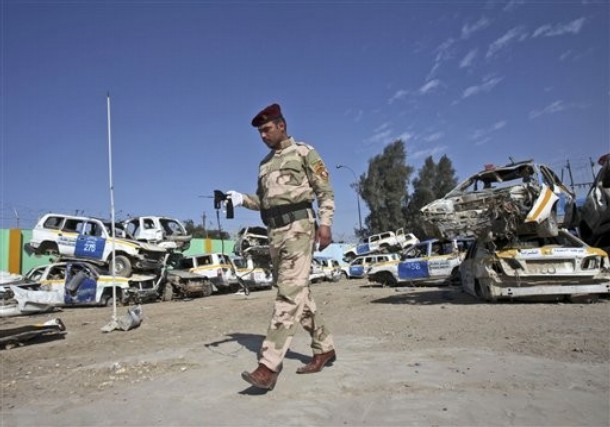
Thomas Ricks argues that prolonging America's stay in Iraq may be the best possible remedy to a return to civil war:
But I think leaders in both countries may come to recognize that the best way to deter a return to civil war is to find a way to keep 30,000 to 50,000 United States service members in Iraq for many years to come.These troopsâ?? missions would be far narrower than during the surge era; their primary goal would be to train and advise Iraqi security forces and to carry out counterterrorism missions. (It is actually hard to get below 30,000 and still have an effective force; many troops are needed for logistics, maintenance, medical, intelligence, communications and headquarters jobs, and additional infantry units are then needed to protect the people performing those tasks.)
Such a relatively small, tailored force would not be big enough to wage a war, but it might be enough to deter a new one from breaking out. An Iraqi civil war would likely be a three- or four-sided affair, with the Shiites breaking into pro- and anti-Iranian factions. It could also easily metastasize into a regional war. Neighboring powers like Turkey and Iran are already involved in Iraqi affairs, and the Sunni Arab states would be unlikely to stand by and watch a Shiite-dominated regime in Baghdad slaughter the Sunni minority. A regional war in the middle of the worldâ??s oil patch could shake the global economy to its foundations and make the current recession look mild.
Ricks is perceptive critic of the Iraq war and knows much more about Iraq than I do, but I think he's suffering here from the same bit of hubris that swayed Washington before and in the immediate aftermath of the war - the idea that we can fine tune Iraq's development with a dollop of military power here, a dash of diplomacy there. Yes, maybe. Hopefully! But what if it doesn't work? What if the small force is not enough to "deter" a civil war from breaking out?
When the U.S. left forces behind in South Korea, they were a "down payment" on a much larger force which was to come to their aid in the event of a North Korean invasion. It was a signal of a much more significant American commitment - it was not the entirety of the commitment. So what are these 30,000-50,000 troops we're supposed to leave in Iraq? Ricks is a bit vague here but it's really the whole ball game - are these forces supposed to do what they can and not expect reinforcements if the situation in Iraq really gets bumpy again? Or do they signify an American commitment to send in even more troops should Iraq unravel?
If it's the later, than we are poised to seriously and in my view dangerously tie our hand to an unstable government.
In Ricks world - as in Obama's - if Iraq backslides, we're still on the hook. We're still living in Pottery Barn, red faced and guiltily holding the broken shards of Iraq for 60 or 70 more years. Resources which could be far more productively engaged elsewhere will be expended for the sake of policing a centuries long sectarian rivalry, settling tribal blood feuds and political squabbling.
The U.S. had close to 140,000 troops in the country and couldn't stop a civil war from breaking out. Why would 30,000 deter a civil war this time? It's true that Iraq's security forces are more developed, but if the war starts to pull ethnic and sectarian groups together, will the Iraqi forces not splinter as well?
The fact is we're dealing with too many variables to confidently predict Iraq's trajectory, as Ricks acknowledges, and in any event it's the wrong frame of reference. The question is what's in the best interest of the United States. America's policy in Korea worked because American forces deterred a rival state against a clearly delineated border. A similar trip wire inside Iraq seems much more likely to be tripped than not. Do we really want to tie ourselves to Iraq en-perpetuity?
(AP Photo)



